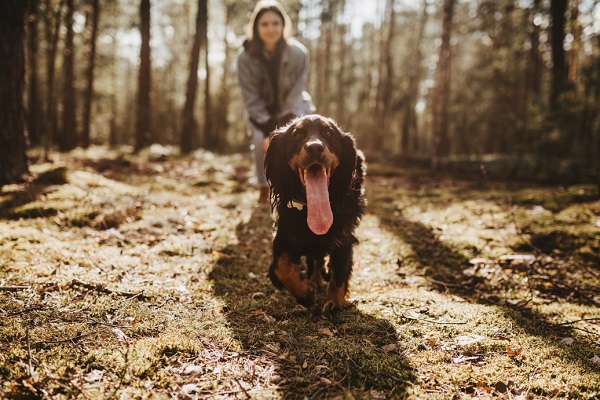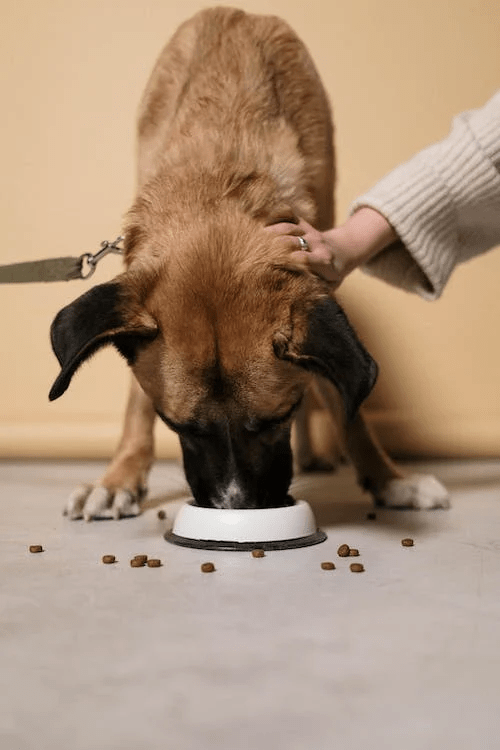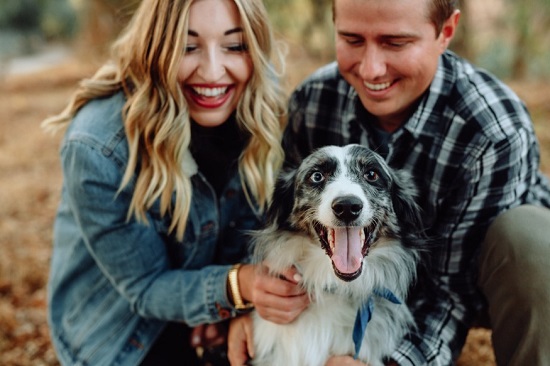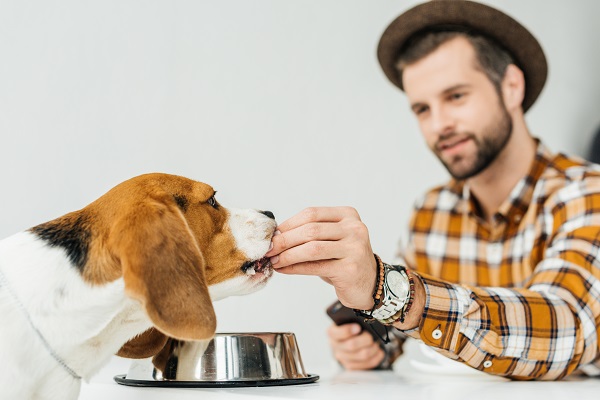The most obvious sign your dog needs a new diet is regular vomiting. If the vomiting has become chronic, their bodies are not receiving and digesting the food properly. It causes their stomach to be upset, which leads to vomiting.
Watch them and see if your dog eats plants like grass while vomiting. The dog is eating plants like grass while vomiting. They do this so they can ease their digestive systems. However, before you change their diet, it is always better to consult a vet.
8 Signs It’s Time to Change Your Dog’s Food
1. Bowel issues such as diarrhea
These are clear signs you must change the diet of your dog. First, check the frequency at which they are pooping. Are they having difficulty doing it, or are they pooping too frequently? These are signs you are feeding the wrong food to your baby.
Apart from the frequency of their bathroom habits, you must look at the form and smell of their feces. If the scent is foul or too strong, it suggests they may have parasites in their intestines or pancreas issues.
2. Extra itching
Every dog scratches their bodies every once in a while. It is just how they behave in a usual way. However, if they score too often, it could be a sign they are suffering from some allergic reaction to the food they eat.
Most dogs tend to be allergic to just about anything, and food allergy is one of them.
The sources of dog allergies are the likes of the following:
- corn
- wheat
- soy
- beef
- lamb
- chicken eggs
So, if you have seen your baby scratch too much, contact the vet.
3. Lethargy or weakness
Is your dog acting lethargic or weak all of a sudden? A possible reason for this could be that they are not getting sufficient nutrients from the food that they are eating. Yet another reason could be the quality of food that they are eating. Finally, their bodies may be too hard to process and digest.
Remember that if they are not getting sufficient nutrition from their meals, they are not getting enough energy. So one way of resolving this is feeding them something else.
4. Bad weight
Like humans, dogs must maintain a healthy weight to live long, happy, and healthy lives. Some dogs tend to gain weight quickly, even when not eating much. In other cases, they do not gain weight despite eating quite a lot.
When making a diet plan for your dog, talk to your vet and find out which foods would be the most suitable option. So, if your dog is underweight or overweight, you may have to change its diet.
5. Flaky and dull coat
If your dog has a flaky and dull coat, it is a clear sign that they need sufficient nutrition from their food. On the other hand, if the dog is healthy, it will have a healthy and shiny coat.
If the coat is itchy and flaky, it is a clear sign of issues with their diet. Hence, administer them a diet rich in Omega 6 and 3 fatty acids – they help keep their coat shiny and healthy.
So, if your dog’s coat is not improving even with regular bathing and grooming, you should talk to the vet.
6. Increasing age
The dietary requirement of a dog changes with their age. It is especially true when the dogs reach their senior years. When the dog is around five to seven years old, it should have reached its seniority.
So, switch to fiber-rich foods low on calories when your dog is about to reach that age or is already there.
Please remember that when the dogs get old, they are not as playful or energetic as they were when they were young.
7. Heavy and oversized midsection
In some dogs, overeating leads to a large midsection. So, if you feed your dogs too much, their waistlines increase, and they could become obese as well. Would you like to find out if your dog is overweight? Just check their waists and see if you can feel their ribs, hips, and spine.
If you can feel those sections, the dogs are in good shape, and their body weight is okay. However, if you have to press firmly to feel their bones, it means a significant amount of fat in their midsection.
8. Gastrointestinal issues
A consistent recurrence of rumbling stomachs and flatulence is a clear sign that your dog’s digestive system is not responding correctly or reacting well to the food you are feeding them. At the very least, these issues would be uncomfortable and bothersome for you – the pet parent.
But, apart from that, it would disturb your dog no end as well. So, if you see these issues recurring, you should talk to your vet and find out if it is happening because of the wrong food.
FAQs
Q: What common signs suggest I should change my dog’s diet?
A: Look for indicators such as digestive issues, excessive weight gain or loss, dull coat, allergies, or changes in energy levels and behavior.
Q: How often should I evaluate my dog’s diet for potential changes?
A: It’s recommended to assess your dog’s diet regularly, ideally every 6 to 12 months, or when you notice significant health or well-being changes.
Q: Can a sudden change in my dog’s diet be harmful?
A: Yes, abrupt diet changes may cause digestive upset. Gradually transition to a new diet by mixing small amounts with the old food over a week or two.
Q: What should I consider when selecting a new diet for my dog?
A: Consider your dog’s age, breed, size, activity level, and any specific dietary requirements or health conditions they may have.
Q: Are there specific ingredients I should look for or avoid in my dog’s new diet?
A: Opt for high-quality protein sources, whole grains, easily digestible carbohydrates, and essential nutrients. Avoid artificial additives, fillers, and potential allergens.
Q: Can I consult a veterinarian for guidance on changing my dog’s diet?
A: Absolutely! Consulting with a veterinarian is highly recommended to determine the best diet options based on your dog’s needs and health condition.
Conclusion
Food is one of the essential factors in keeping your dog happy, thriving, and healthy. So, you’ll need to provide them with food that best caters to their dietary needs.
Here we have discussed several signs that your dog needs a diet change. If you notice any, please consult the vet without hesitation. Get your dog checked by them and work with the doctors to determine if changing their diet would be the right way to go about it.
 DogExpress
DogExpress






















 in Chandigarh, India.
in Chandigarh, India. 

